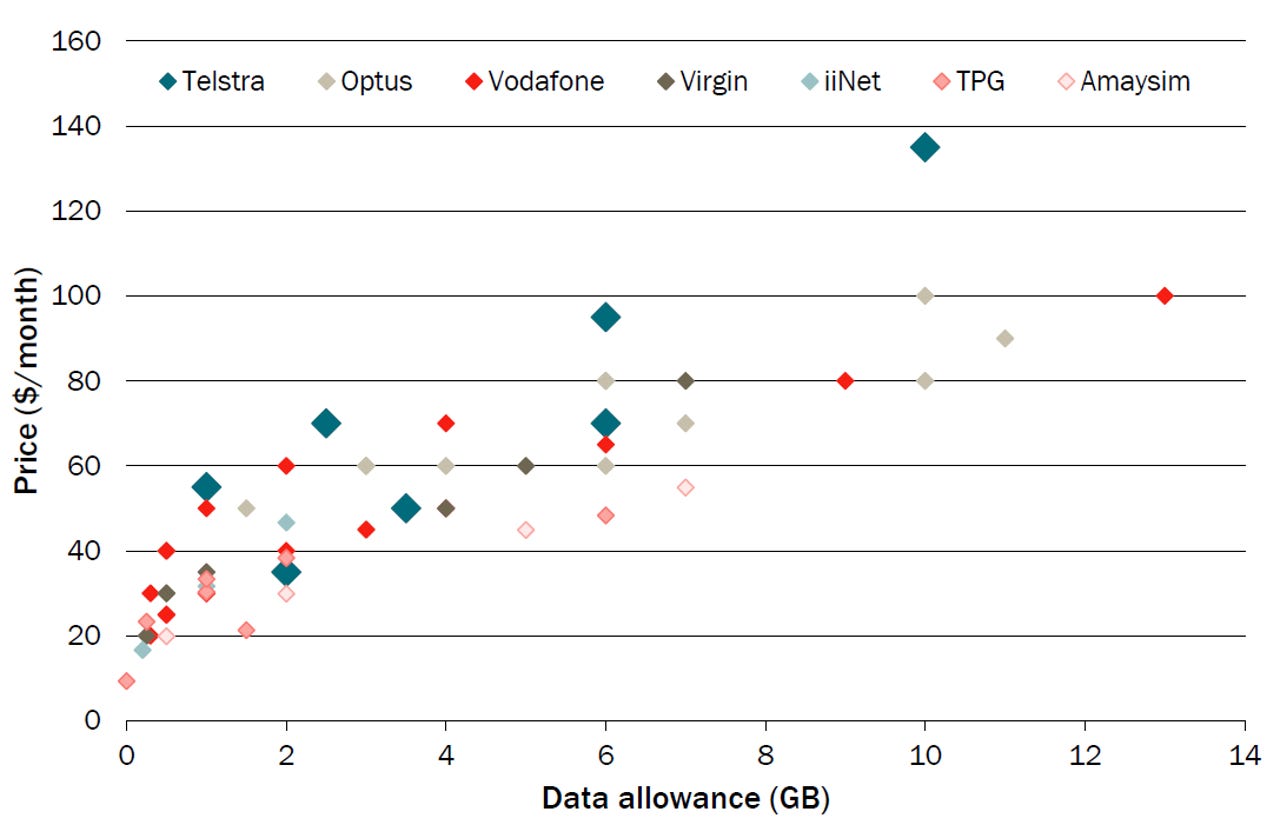Telstra hits out at overcharging claims from Vodafone

Telstra has hit back at competitors after they claimed the telco giant is overcharging its customers.
The report -- Australia's telecommunication market structure -- which was commissioned by Vodafone Hutchison Australia, said Telstra is hitting customers with premium prices for its services compared to other providers.
For instance, Telstra is charging customers AU$20 more per month for fixed-line services and AU$9 per month for mobile services compared to other operators, the report said.
The report also said that Telstra customers pay 50 percent more per gigabyte of data than they would with other providers. The report concluded that the additional costs to households of telecommunications services from the premium amounts equated to AU$3.1 billion per year.
However, a Telstra spokesperson has said that the findings of the Centre for International Economics (CIE) report that looked into the cost of Australian telecommunications is only indicative of its success.
"This simply confirms that over several years, Telstra has been attracting more customers because we offer the things they value most: Better network coverage, and more innovative products and services," the spokesperson said.
"The experience of the Australian market makes it clear the companies willing to invest in their network are able to attract more customers and drive increased consumption, while under-investment results in the opposite."
In August last year, Telstra reported that its total customer base was 27 million, 16 million of which were mobile customers; significantly greater than the 5.3 million customers (PDF) Vodafone said it had in February during its 2014 full financial year report.
Vodafone director of strategy and corporate affairs Dan Lloyd said the report highlighted an urgent need for telecommunications policy reform in Australia to lower the playing field for other providers, and give consumers greater choice and lower prices.
"It's clear that millions of Australians, especially those in regional areas who have no effective choice, are getting a raw deal from the telecommunications market structure in this country," he said.
"We have a situation where policy decisions have discouraged competition and protected the incumbent. This means customers in many areas, particularly regional Australia, simply have no alternative to paying high prices, because there is only one service provider."
Latest Australian news
The CIE identified five barriers that were impeding price reductions. The report said the first was Telstra continuing to receive subsidies, such as the Universal Service Obligation and the NBN Agreement, which are not being used to provide lower prices for Australian consumers, but have instead allowed the telco to "entrench its market dominance".
The CIE added that other barriers preventing fair competition include the disparity in spectrum holdings in regional areas, regulated transmission prices, and Telstra's ownership and access to facilities such as mobile base stations.
The report also said that consumers are rather slow to respond to better telecommunications services, and that more information about coverage and quality of mobile and fixed-line services is needed.
The Competitive Carriers Coalition, the industry association for non-dominant telcos in Australia, has welcomed the findings of the CIE report.
"The time has come for action -- a fundamental examination of Australian communications markets to determine why competition is so weak and prices so internationally uncompetitive, a much less cautious approach by the ACCC in setting prices for Telstra monopoly services, and a review of all the taxpayers' subsidies that Telstra continues to receive, despite its massive profits," a CCC spokesperson said.
"The cost of Telstra's dominance is paid by Australians time and again -- in their taxes to subsidise Telstra in myriad ways, in the prices they pay for their services, and in the delays in the rollout of services that other countries take for granted."
